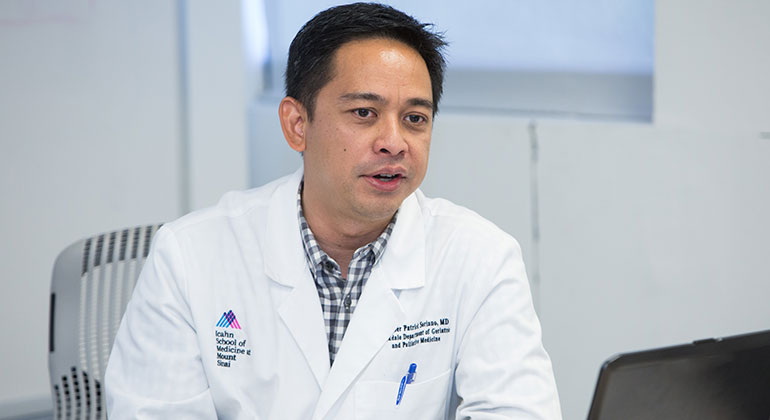Icahn School of Medicine at Mount Sinai Launches Project to Dismantle Systemic Racism in Medical Education
Academic Partners Sought for Three Year Project

With generous support from the Josiah Macy Jr. Foundation, the Icahn School of Medicine at Mount Sinai announced today a three-year project to replicate its model for dismantling systemic racism in medical education. The school has put forth a Request for Proposal (RFP) seeking eight to ten partner medical schools in the United States and Canada who will participate in the Icahn Mount Sinai learning model, centered on a virtual learning platform.
The platform will engage students, staff, and faculty in virtual experiential learning, assessments, outcome and performance monitoring sessions, and coaching to achieve systemic and adaptive change that leads to cultural transformation.
Applications for the Anti-Racist Transformation (ART) in Medical Education are due on August 16, 2021.
“While racism permeates clinical practice and biomedical research, the shadow that it casts on medical education is even more profound and egregious; it is through medical education that racism and bias are perpetuated across multiple generations,” says David Muller, MD, FACP, Dean for Medical Education, Icahn Mount Sinai, and a principal investigator of the project. “We developed our model on the belief that racism can only be mitigated through a formal change management process that it is life-long and requires vigilance and openness to course correction.”
Under the direction of Dr. Muller and Leona Hess, PhD, MSW, Senior Director of Strategy and Equity Education Program, Icahn Mount Sinai, and with co-investigator, Jennifer Dias, a rising third-year medical student, this partnership with other medical schools will establish a community of practice that facilitates shared learning on how to deconstruct racism and bias.
“Practice is a fundamental element of transformation. To transform, we must reexamine and make changes to central aspects of Medical Education,” Dr. Hess says. “This will require us to re-envision how we perform job functions and learn in and from our environment. We knew we needed to design programs that develop capacities on the individual and the institutional levels that foster a welcoming and creative community so we can learn from each other and our collective practice.”
The model reflects the field of change management and literature on social change. The change-management strategy will leverage components of Icahn Mount Sinai’s Racism and Bias Initiative (RBI), which is unique in its focus on change that is continuous and evolving, not an isolated event or action. “Our approach is not a top-down, step-by-step, linear process. It is constantly self-correcting and requires that we remain open to change and self-reflection,” says Dr. Muller.
About the Mount Sinai Health System
Mount Sinai Health System is one of the largest academic medical systems in the New York metro area, employing 48,000 people across its hospitals and more than 400 outpatient practices, as well as more than 600 research and clinical labs, a school of nursing, and a leading school of medicine and graduate education. Mount Sinai advances health for all people, everywhere, by taking on the most complex health care challenges of our time—discovering and applying new scientific learning and knowledge; developing safer, more effective treatments; educating the next generation of medical leaders and innovators; and supporting local communities by delivering high-quality care to all who need it.
Through the integration of its hospitals, labs, and schools, Mount Sinai offers comprehensive health care solutions from birth through geriatrics, leveraging innovative approaches such as artificial intelligence and informatics while keeping patients’ medical and emotional needs at the center of all treatment. The Health System includes approximately 9,000 primary and specialty care physicians and 11 free-standing joint-venture centers throughout the five boroughs of New York City, Westchester, Long Island, and Florida. Hospitals within the System are consistently ranked by Newsweek’s® “The World’s Best Smart Hospitals, Best in State Hospitals, World Best Hospitals and Best Specialty Hospitals” and by U.S. News & World Report's® “Best Hospitals” and “Best Children’s Hospitals.” The Mount Sinai Hospital is on the U.S. News & World Report® “Best Hospitals” Honor Roll for 2024-2025.
For more information, visit https://www.mountsinai.org or find Mount Sinai on Facebook, Twitter and YouTube.

Three Medical Students at Icahn School of Medicine at Mount Sinai Named Tillman Scholars
Jun 28, 2023 View All Press ReleasesIcahn School of Medicine at Mount Sinai Launches Enhanced Scholarship Initiative
Apr 11, 2019 View All Press Releases
